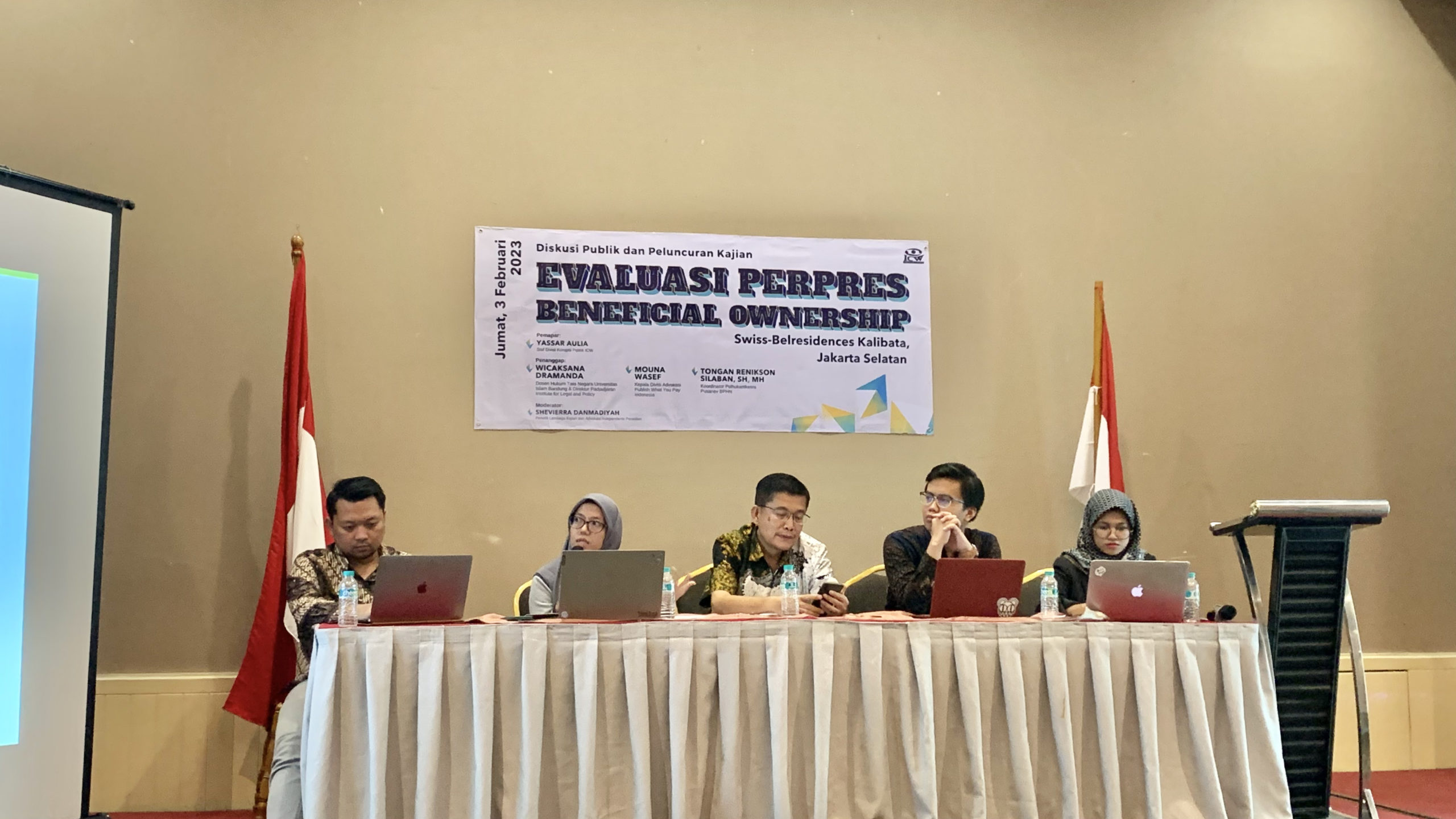Jakarta – Indonesia Corruption Watch (ICW) recently evaluated Presidential Regulation No. 13/2018 regarding the Implementation of the Principle of Recognizing Beneficial Owners of Corporations in the Framework of Prevention and Eradication of Criminal Acts of Money Laundering and Terrorism (Perpres BO). The evaluation highlighted the importance of recognizing the beneficial ownership of a corporation, which can prevent various white-collar crimes, including corruption.
Beneficial ownership (BO) is an individual who owns or controls a company. However, its existence is often disguised or even covered up through non-transparent and complex corporate structures. Thus, the ICW study highlights that there is still room to improve the substance of the regulation in the Presidential Regulation governing BO disclosure.
The extractive industry is one of the sectors prone to corruption, conflict of interest, and environmental damage. Identifying the company’s beneficial owner makes the extractive industry prone to various irregularities. For this reason, it is essential to increase BO transparency in Indonesia. However, according to the Ministry of Law and Human Rights (Kemenkumham) RI report, only around 29.87% of corporations have reported BO as of October 2022. ICW’s findings conclude that this problem can be attributed to the Perpres BO as a legal instrument.
The activity, which was held on February 03, 2023, in one of Jakarta’s numbers, invited speakers Yassar Aulia (ICW Political Corruption Division Staff) as a study speaker; Tongam Renikson Silaban, S.H., M.H. (Kemenkumham RI National Law Development Agency); Wicaksana Dramanda, S.H., M.H (Bandung Islamic University Constitutional Law Lecturer); and Mouna Wasef (Head of the Research and Advocacy Division of Publish What You Pay Indonesia) as study responders. This activity aims to disseminate ICW’s critical notes related to BO regulations in Indonesia to the public and stakeholders. This activity also aims to obtain responses from stakeholders regarding the critical notes issued by ICW.
Mouna Wasef, as a respondent in this discussion, conveyed several notes. She mentioned that there had been progress in submitting BO data, as seen from the existence of a beneficial owner website that the public can access as of July 2022. Although there is still a disclaimer from the Director General of AHU that the BO reported by the corporation has yet to be verified, and only 32.30% of Limited Liability Companies (PT) have reported BO data. The low number of PTs reporting is due to several things, including many companies with inactive status, needing to understand how to identify BO, or there is no good faith to report BO.
The lack of verification by the Director General of AHU also raises general questions about whether the corporation has reported the ultimate beneficial owner or only reported the legal owner/company shareholder/nominee who does not necessarily have complete control over the policies taken by the company. ICW and several civil society organizations (CSOs) have conducted studies to check who are the beneficial owners of companies engaged in the coal sector, but containing one by one requires a short time and high costs considering that to obtain complete data on company deeds must pay a Non-Tax State Revenue (PNBP) of IDR 500,000.
In her presentation, Mouna Wasef also provided several suggestions, including that CSOs make an analysis to strengthen verification methods and supervision of BO data reported by companies. In Permenkumham No. 21 of 2019, the verification that is carried out leans on self-assessment by filling out a questionnaire and submitting a statement letter. Meanwhile, supervision depends on the risk level of the company. For the natural resources sector, it is important to encourage regulations as a basis for license verifiers in the natural resources sector to be able to reject license applications submitted by business actors that do not meet the provisions of regulations related to BO reporting. This is important as a form of stricter supervision of companies in the extractive industry sector.
Author: Raudatul Jannah
Reviewer: Mouna Wasef
